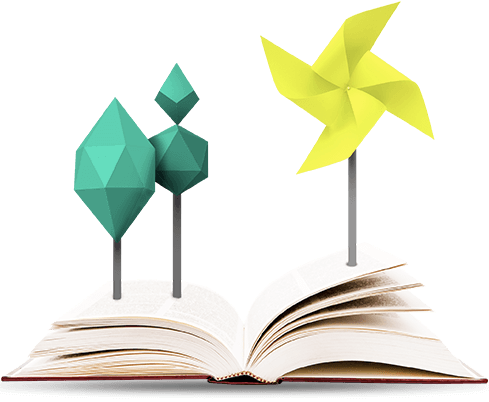Wo master - Recht en Bestuur
Political Science
Varianten: Political Science: Democracy, Power and Inequality, Political Science: International Relations, Security and Global Order, Political Science: Global E...

Over de opleiding Open dag: 7 maart

De éénjarige, Engelstalige master Political Science biedt je een uniek curriculum.
Je leert hoe macht werkt in een sociale en internationale context en hoe je jouw kennis inzet voor het vinden van oplossingen voor de politieke en sociale vraagstukken van nu. Daarnaast specialiseer je je in een onderwerp naar keuze waardoor je over een uniek profiel beschikt voor toekomstige werkgevers.
De master heeft drie specialisaties waar je uit kunt kiezen:
1. Democracy, Power and Inequality;
2. Global Environmental Governance, Sustainability and Climate Change;
3. International Relations, Security and Global Order.
Keuzes binnen de opleiding
-
This specialisation unpacks the mechanics and distribution of power. Are you interested in what causes persistent inequalities in the world? Do you want to understand the growing loss of confidence in the world’s leadership or the rise of populism? What issues affect the future of democracy or the EU? What are the different types of government?
This specialisation looks at institutions, power, democracy and representation. It provides tools to analyse the ways societies are organised politically and how this affects the provision of policies and the distribution of wealth and resources. This will bring you to an understanding of how these dynamics drive inequalities within and between societies, the unequal distribution of power and representation, the difference democracy may make, and how this impacts the way decisions are made and their impact on society. The specialisation gives particular attention to how national decisions have spill-over effects beyond national boundaries may affect the international order as a whole.
Kennismaken met deze variant?
-
If you want to understand the complexities of global power, how conflicts are played out on the world stage, and how this impacts national politics and societies, this specialisation is for you.
Are you interested in conflicts in a changing world order? Like the rivalry between the US and China? Do you want to understand how power is shifting from West to East? What are the drivers in newer conflicts, such as who owns our natural resources, or our technology? Are new forms of cooperation possible to tackle global problems such as growing inequality or a pandemic like the coronavirus? You will debate issues like this in different settings, from large groups to tutorials. You will also look at the effects of globalisation on the world economy, on international security, and on global cooperation. You will analyse how politicians and diplomats cooperate and negotiate with multinationals, NGOs, and intergovernmental organisations such as the World Bank or the World Health Organisation.
Kennismaken met deze variant?
-
If you’re interested in the global political struggle to create a sustainable relationship between people and our environment, perhaps the biggest challenge of our time, this track could be for you. What, for example, are the political struggles that underpin the transition towards a fossil-free economy? How do we tackle global environmental problems with effective and legitimate governance? How can governments, cities, regions, companies and civil society join forces to create new solutions to complex problems? And what about addressing the needs of both industrialised and developing countries?
This specialisation focuses on global environmental governance; it marries international relations with environmental studies. You will unearth the complexity of global cooperation between politicians, policy-makers, multinationals, international organisations, civil society and scientists when it comes to governing the environment.
You will study environmental degradation from the perspective of politics and international relations and find out what the political aspects are of a range of environmental problems, such as climate change, biodiversity loss, deforestation and unstainable fisheries. You will develop your methodological skills and analytical toolbox, both qualitative and quantitative, and learn how to apply them to environmental challenges.
Kennismaken met deze variant?
Op Studiekeuze123 kun je informatie vergelijken. Op de website van de onderwijsinstelling kun je verder lezen als de opleiding je aanspreekt.
Bekijk instellingswebsiteBekostiging: Overheid
Toelating & selectie € 2.601 wettelijk collegegeld in 2025 / 2026

Om toegelaten te worden tot een opleiding moet je aan bepaalde eisen voldoen.

Toelatingseisen
Om aan een master te kunnen starten, heb je een bachelordiploma nodig.
Sluit je bachelor niet direct aan op de master, of stroom je door van hbo naar wo? Dan moet je meestal een schakelprogramma of premaster volgen. Lees meer over schakelprogramma’s (Schakelprogramma, is dat nodig? - Studiekeuze123)
Collegegelden
Wettelijk collegegeld
Wettelijk collegegeld
Wettelijk of instellingscollegegeld?
Heb je recht op het wettelijk collegegeld of betaal je het instellingscollegegeld? Gebruik onze Collegegeldwijzer
Hoe hoog is het instellingscollegegeld? Bekijk het op de website van de universiteit
Meer weten?
Belangrijke data 31 mei aanmelddeadline opleiding

Mis geen belangrijke gebeurtenissen. Check belangrijke data ook bij de opleiding zelf.

-
31
mei 2025
Aanmelddeadline opleiding -
1
september 2025
Start opleiding
Alle startmomenten -
7
maart 2026
Open dag / avond
Meer open dagen
Tijdens de opleiding 80 eerstejaars

Geen enkele opleiding is hetzelfde. Kijk daarom naar de kenmerken van een opleiding.

Studeren bij deze instelling
Studieadvies
We hebben onvoldoende betrouwbare informatie over dit onderwerp.
Studieverloop
Diploma binnen 2 jaar
Meer weten?
Tevredenheid 3.8/5.0 algemene tevredenheid

Hoe beoordelen de (oud)studenten deze opleiding?

Nationale Studenten Enquête
Hoe tevreden waren studenten in 2024 over aspecten van deze opleiding?
|
Deze opleiding
Vrije Universiteit Amsterdam |
Landelijk gemiddelde
Political Science Vergelijk alle 4 opleidingen |
verschil | |
|---|---|---|---|
|
Studenttevredenheid
Meer informatie | 3.8 / 5 | 3.9 / 5 | |
| Sfeer | 4.0 / 5 | 4.1 / 5 | |
| Studiefaciliteiten | 3.7 / 5 | 3.9 / 5 | |
| Studie opnieuw kiezen | 3.5 / 5 | 3.8 / 5 | |
| Inhoud en opzet | 3.6 / 5 | 3.8 / 5 | |
| Aansluiting beroepspraktijk | 2.6 / 5 | 2.8 / 5 | |
|
Studenttevredenheid
Meer informatie | 3.8 / 5 | 3.9 / 5 | |
| Sfeer | 4.0 / 5 | 4.1 / 5 | |
| Studiefaciliteiten | 3.7 / 5 | 3.9 / 5 | |
| Studie opnieuw kiezen | 3.5 / 5 | 3.8 / 5 | |
| Inhoud en opzet | 3.6 / 5 | 3.8 / 5 | |
| Aansluiting beroepspraktijk | 2.6 / 5 | 2.8 / 5 | |
| Docenten | 3.9 / 5 | 4.1 / 5 | |
| Lesstof in het Engels | 4.5 / 5 | 4.6 / 5 | |
| Studiebegeleiding | 3.6 / 5 | 3.9 / 5 | |
| Toetsing en beoordeling | 3.8 / 5 | 3.9 / 5 | |
| Betrokkenheid en contact | 3.9 / 5 | 4.0 / 5 | |
| Studiedruk |
Oordeel afgestudeerden
Over de studie Political Science
Studeren met een ondersteuningsbehoefte
Veel studenten hebben tijdens hun studie behoefte aan extra voorzieningen of flexibiliteit in het onderwijs. Dit kan komen door een aandoening zoals dyslexie, een chronische ziekte, psychische klachten, maar ook topsport of ondernemerschap tijdens de studie. Studenten beoordeelden hoe tevreden ze zijn over de ondersteuningsmogelijkheden bij hun onderwijsinstelling.
Na afstuderen 59% van de werkenden vond een baan op niveau

Lees hoe het studenten van deze opleiding in de eerste periode na hun studie vergaat op de arbeidsmarkt.

De meeste informatie die je hier ziet geeft een inkijkje in de situatie van afgestudeerden aan deze opleiding 1,5 jaar nadat ze zijn afgestudeerd. De informatie heeft betrekking op de studie Political Science en niet alleen over de opleiding aan deze instelling. Ben je nieuwsgierig hoe we aan de informatie zijn gekomen? Klik dan bij de verschillende onderwerpen op 'Meer informatie'.
Meest gekozen beroepen (na deze studie)
| Specialisten op het gebied van beleidsadministratie | 30% |
| Professoren en andere onderwijsgevenden in het hoger onderwijs | 13% |
Een (substantiële) baan vinden...
duurt gemiddeld 11 maanden.
35% krijgt een vast contract.
Match tussen studie en beroep
62% vond een baan binnen het vakgebied van de studie
59% vond een baan op het niveau van de studie
Startsalaris
Het startsalaris na deze studie is lager dan het gemiddelde van alle wo master studies.
€ 3.087
Geschatte startsalaris na deze studie
€ 3.150
Geschat van alle wo master studies
Gemiddelde werkweek
Hoeveel uur afgestudeerden gemiddeld werken bij hun huidige baan.
37 uur
Het percentage zelfstandigen
Het aandeel mensen dat werkt als zelfstandige of ondernemer.
3%
Contact Contact 020-5985020

Meer weten over de opleiding? Neem contact op met Vrije Universiteit Amsterdam


Meer informatie
Bezoek ook de website van Vrije Universiteit Amsterdam
Bezoek website van Vrije Universiteit Amsterdam



